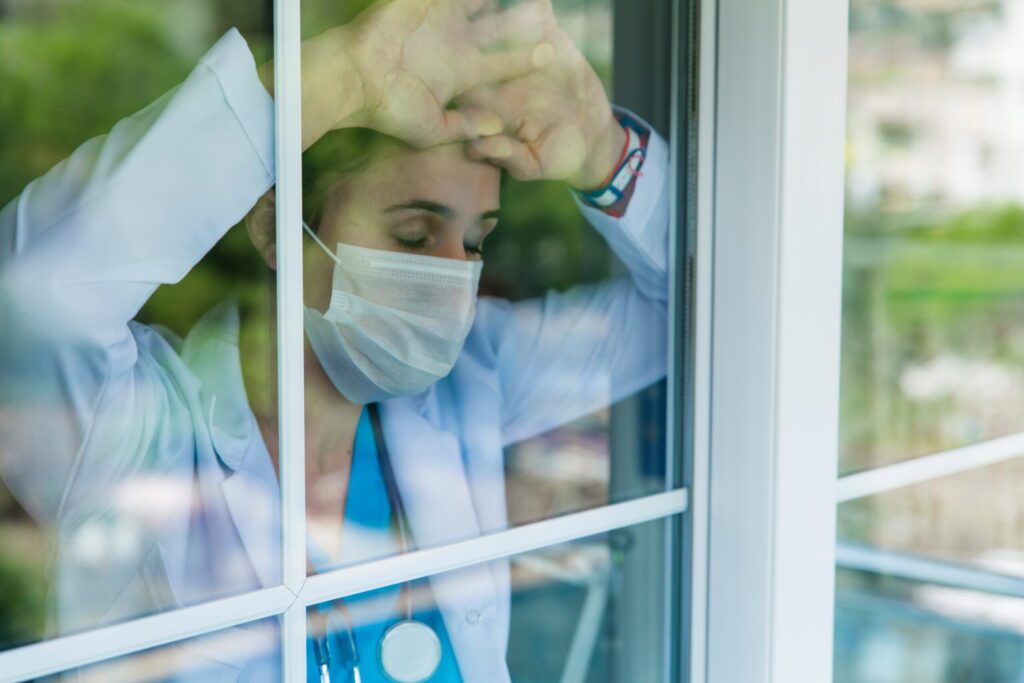Drawn-out COVID-19 Battle Puts Healthcare Workers at Greater Risk of Burnout
by MATT COBBLE
As the battle with the novel coronavirus (designated COVID-19) moves into the summer, physicians must consider the toll being taken by this elongated campaign. While physician burnout was an area of great concern before the pandemic, it’s certainly been exacerbated by four months of unprecedented conditions.
Now, medical professionals are at an increasingly greater risk. The increased need for services means more doctors and nurses are working longer hours and more days per week. Combined with this is the elevated risk care providers are taking, some working with limited personal protective equipment (PPE), seeing colleagues become sick, and worrying about contracting this virus themselves and putting their families at risk.
Not to mention the fact that Florida, among other states, is seeing an upswing in coronavirus cases. Hardest hit areas are Miami-Dade county and Central Florida, especially in Hillsborough and Orange counties. Both Tampa and Orlando have issued mandatory face mask requirements in public, joining most of Florida’s larger cities. Although Polk county’s numbers have also risen in recent weeks, no such move has been made as of yet.
Naturally, a professional who is burnt out is not working to his or her best capacity, so the importance of making time for self-care, even in the midst of overwhelming circumstances, cannot be overstated.
“No one is impervious to watching others suffer,” says Mary Joye, a licensed mental health counselor. “It creates vicarious trauma and is a fast track to burnout, which is a diagnosable medical illness.” She points out that although workers in the healthcare fields are trained to respond to traumatic events, whether hearing them after the fact or witnessing them first-hand, they need to have time away to take a break and process these events. Without such a respite, providers can begin to experience symptoms of post traumatic stress, including irritability, sleep disturbance, or an inability to concentrate.
“They are running on fumes, and that is what an exhaust emits,” Joye points out. “It’s toxic to the body and mind.”
How should healthcare professionals look to counter this in their own lives? Joye recommends that they are making their own self care a priority. “There’s no shame in taking a short break, going for a long drive, sleeping in, turning off the phone or spending a day with loved ones.” Joye attests to the value of these activities, even using them in her own self-care routine.
Although certain options, such as taking a vacation to a destination, are not currently viable due to the restrictions in place because of the virus and the increased need for services, Joye recommends remembering that those doors will be open again sometime ahead of us. “Planning where we will go when a vaccine is available looks to a brighter future. Looking for vacation spots where I can meet with family and friends gives hope.”
Dr. Rajendra Sawh, Urgent Care specialist for Watson Clinic’s Main Campus location, weighs in with his own routines and recommendations.
“To unwind from work, I make sure I get enough rest. I also exercise regularly outdoors while maintaining physical distance from others.” Although staying informed on current events is important, Sawh added that he specifically limits his intake of news media. Instead, he devotes that time to recreational reading. “I also communicate with my family members and friends to maintain social closeness via FaceTime, Zoom, Messenger and phone calls.”
To colleagues across the medical profession, Sawh and other experts add a few additional suggestions for self-care:
- If you have a hobby, especially one unrelated to medicine, take the time to engage in it. Or perhaps take the time to delve into an interest you’ve had but not pursued.
- Do not neglect physical self-care. Eating healthier foods, staying hydrated, getting physical activity through exercise, and getting sufficient sleep will all do wonders for both body and mind.
- Likewise, resist the temptation to ‘self-medicate’ with alcohol, nicotine, or other substances.
- Maintain social engagements while at the same time observing physical distancing guidelines.
- Communicate frequently with your loved ones. Social media can be good for this, in small doses, but do not underestimate the value of a phone call. You can also use a virtual meeting platform to have some face-to-face conversations, even remotely.
- Practice gratitude at all times. Even in the midst of our current circumstances, there is no shortage of things to be thankful for. Find them, and focus on them.
